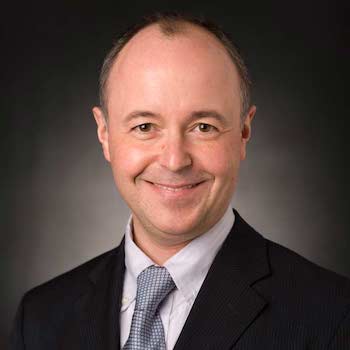Location
1933 Cooley
Phone
Website
Biography
Dr. Jovanovic is a Professor of Nuclear Engineering and Radiological Sciences and Applied Physics at the University of Michigan, Director of the Neutron Science Laboratory (NSL) and the Applied Nuclear Science Instrumentation Laboratory (ANSIL), and leader of the Applied Nuclear Science Group. He also serves as the Chair of the Graduate Program in Nuclear Engineering and Radiological Sciences.
Dr. Jovanovic received his Ph.D. in Nuclear Engineering from the University of California, Berkeley in 2001. He held a staff physicist position at Lawrence Livermore National Laboratory and was also a professor at Purdue University and Penn State University. His research focuses on the applications of nuclear science and laser science and technology for nuclear security and nonproliferation and has been supported by DOE, NSF, DHS, DARPA, DTRA, and NRC. He serves as an Associate Director for National Laboratories in the NNSA Consortium for Monitoring, Technology, and Verification and the thrust area lead for Nuclear and Particle Physics and is a part of the executive leadership team of the DTRA Interaction of Ionizing Radiation with Matter – University Research Alliance.
Dr. Jovanovic participates in several initiatives in reactor antineutrino monitoring that use novel segmented inverse beta decay detectors and coherent elastic neutrino-nucleus scattering detectors. He is a member of the US-UK WATCHMAN collaboration, which focuses on remote detector discovery and monitoring using large water-based detectors. His group has developed novel heterogeneous composite radiation detectors and used them to demonstrate multi-particle, multiple-monoenergetic spectroscopic radiography and delayed neutron signature detection using ion-driven nuclear reactions as a new method for active interrogation.
In the area of laser science and technology, Dr. Jovanovic’s group develops novel methods for the detection of proliferation-relevant materials over long distances using ultrafast lasers and on simulating extreme environments using laser-produced plasmas. Other research activities in his group include novel ultrafast radiation sources based on intense laser-matter interactions and ranging from long-wave infrared to gamma rays and neutrons. As a member of the High-Field Science Group in Michigan’s Gérard Mourou Center for Ultrafast Optical Science, he is a member of the leadership team for the NSF-supported 3-petawatt ZEUS user facility – the highest power laser in the United States.
Dr. Jovanovic is a recipient of many awards, including the DARPA Young Faculty Award and the DHS Nuclear Forensics Junior Faculty Award. He is a Fellow of the American Nuclear Society and a Fellow of Optica (formerly known as the Optical Society of America).
News
-
NERS to Support NSF-Funded EP-OPAL Laser Facility
-
NERS alum Dr. James Baciak and NERS professor Dr. Igor Jovanovic are among the founders of the new Consortium for Nuclear Forensics sponsored by the National Nuclear Security Administration (NNSA)
-
Igor Jovanovic named Fellow of the American Nuclear Society
-
Nuclear nonproliferation: $1.9M to improve detection of weapons-grade material
-
University alliance receives $51.5M in funding from Defense Threat Reduction Agency
Education
University of California, Berkeley
PhD Nuclear Engineering ’01
University of Zagreb
BS/MS Electrical Engineering ’97
Research Interests
- Radiation detection
- Lasers and optics
Honors and Awards
- Fellow, American Nuclear Society, 2021
- Fellow, Optical Soceity, 2019
